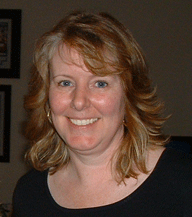 Global Legal Ebilling founder Jane A. Bennitt is a subject matter expert in the creation and deployment of collaborative case management, ebilling and contract management solutions. Jane’s specialty is global ebilling. Jane works with law departments, insurance claims organizations, law firms and vendors needing assistance with requirements gathering around workflow and business processes, compliance concerns, designing and implementing automated solutions, data availability and quality, and creating metrics to support business process improvement.
Global Legal Ebilling founder Jane A. Bennitt is a subject matter expert in the creation and deployment of collaborative case management, ebilling and contract management solutions. Jane’s specialty is global ebilling. Jane works with law departments, insurance claims organizations, law firms and vendors needing assistance with requirements gathering around workflow and business processes, compliance concerns, designing and implementing automated solutions, data availability and quality, and creating metrics to support business process improvement.
Jane’s corporate and insurance clients are usually in the most difficult of circumstances: globally situated companies with custom needs, usually having numerous, often disconnected, financial systems. Frequently Jane assists with law firm on-boarding, often serving as a main point of contact until firms new to ebilling have successfully submitted and been paid. She also provides client-side troubleshooting and Help Desk assistance until internal Project Managers are confident on their new system and processes.
Jane began working in the Legal Ebilling vertical on November 28, 1994 as the first employee dedicated to a project that later became the company TyMetrix. Jane was directly responsible for or assisted in creating many of the systems and processes which led to the incredible success of TyMetrix in its first decade, including, most notably, developing the business model used today for legal ebilling. At TyMetrix Jane worked in every capacity imaginable and, by the time of her separation in 2005, was Director of Data Services. Thereafter Jane worked as a legal technology consultant at Baker Robbins & Company / Hildebrant Baker Robbins, eventually founding GLE in 2011.
Jane has an encyclopedic understanding of the data set involved in matter management and ebilling. Her ebilling superpower is that she can look at a screen of data and see patterns and anomalies that are not apparent to others. She can trace web data issues back to the source system page to determine whether errors are user-related, from an imported data set, or simply programming that needs to be corrected.
Jane has been on the LEDES Oversight Committee Board of Directors since the founding of the organization and served as the President for seventeen years from 2006 through 2025. During this time legal ebilling expanded globally, tax compliance features were perfected, and jurisdictional tax authority system were first established and then spread globally. (Legal ebilling is not so easy outside the US!) Jane created the XML 2.0x, 2.1x and 2.2x formats to support global ebilling, spearheaded all revisions to these standards, and has contributed to numerous subcommittee efforts including the LEDES API.
In an industry full of big personalities, Jane is often challenged over “who’s done it longer” and has always won the challenge. It is unlikely that anyone in the industry has a better understanding of how legal ebilling works, its possibilities, or its issues. Jane believes that legal ebilling is not “done,” that there are many areas where improvement is needed, and she donates an incredible amount of time every year nudging the industry toward a better solution.
No one has more experience in legal ebilling or in thought leadership within the industry.
Three Decades of ELM Excellence
GLE founder Jane Bennitt celebrated her 30th anniversary in the ebilling industry in November, 2024.
It was 1994 when Jane was started as the first employee to work on a project intended to help an insurance GC better understand his legal spend. Jane was tasked with turning the idea (“that’s simple!”) into a business with administrative processes, client service and help functions for our law department and insurance clients, and for their outside counsel requested to ebill, as well as to provide input on the technical development of the system.
The idea was to have outside counsel submit a file containing the data elements that underlay a regular paper invoice. The original format required outside counsel to identify the hours and type services necessary to bring a matter to conclusion, and by adding information on the timekeeper and rate, cost could be derived secondarily. A system was designed to receive and validate invoice submissions, route them to bill reviewers within the client organization, present the information in a uniform fashion for review, allow bill reviewers to reject or to adjust and approve invoices, and facilitate payment of the invoices. They waited until the UTBMS codes were released, recognizing that these would be an invaluable component of invoice validation, and the first 13 law firms were installed in December of 1995. In the months thereafter the company was incorporated under the name TyMetrix. By the time the LEDES 98 format was released, TyMetrix had more than 230 firms submitting ebills and the system was retrofitted to accept the LEDES industry standard.
The system proved so successful that clients instantly wanted more functionality: timekeeper and rate approval; more fulsome matter management features; collaboration; budgeting; case plans; canned and ad-hoc reporting; outside counsel scorecarding; integrations with AP, IP, DM and mail systems; the ability to appeal reductions taken; accruals; resolution information; and, later on, functionality to support global clients (to name just a few…).
The discussion in those early days was that invoice information would be used to manage better. By marrying it with matter and resolution information, it could:
- facilitate budgeting for like matters by ultimately having the system tell clients and outside counsel what a matter should cost
- identify which firms obtained better outcomes
- identify motions or experts that contributed to better resolutions
- highlight geographic differences that impact how like matters settle
- model matter-handling procedures to achieve better outcomes
Many decisions made in those early days became the standard for how the industry would operate. Jane’s contributions helped to shape the discipline.
